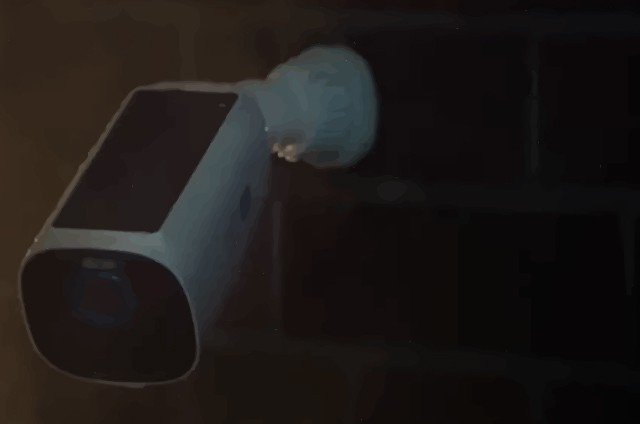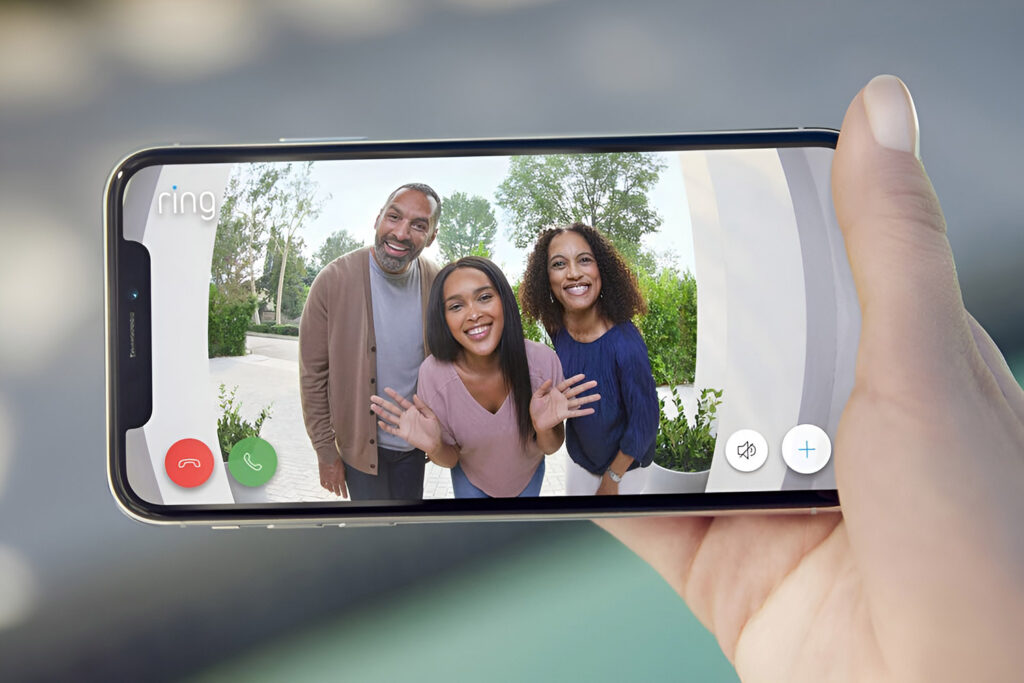Waterproofing is the bread and butter of most outdoor home security cameras, so we wanted to turn up the heat—so to speak—to help you find out whether Eufy cameras are waterproof.
Well, here is the deal: one of the great things about Eufy cameras is that they come with the more robust IP65 or IP67 weatherproofing. These ratings mean the cameras can handle rain, cold, and even snow.
You should know, though, that this does not mean Eufy Cameras cannot get wet when exposed to water or moisture. Still curious? Continue reading to learn more about Eufy cameras' waterproofing capability.
Key Points
- Eufy cameras can withstand rain, cold temperatures, and snow due to their IP65 or IP67 ratings.
- Though waterproof, be careful not to expose these cameras to water routinely.
- Constant water or moisture exposure reduces their performance over time.
- Therefore, mount them under overhangs, use protective covers, or place them in dry spots to keep cameras dry.
- Additionally, regular maintenance helps them last longer.
Are Eufy Cameras Entirely Waterproof?
Eufy cameras have an IP65 ingress protection rating, while others are IP67. This means they are protected with a waterproof case so that water does not get inside their electrical components. In reality, they can handle quick full water immersion up to 1 meter deep without any damage.
While this may be the case, exercise caution not to position the cameras where they could get routinely rained on, sprayed, or otherwise wet. Extended water or moisture exposure can readily damage the devices.
One thing we can’t ignore is that since Eufy outdoor cameras are put outside, there is a great chance that they will get wet. Let’s now talk about what happens whenever Eufy cameras are exposed to water.
👉 Related reading: Wrong Time Showing On Eufy Camera Or Doorbell Recordings
What Normally Happens if Eufy Cameras Get Wet?

Earlier, we mentioned that Eufy Cameras have a weather rating of up to IP67. Such an IP rating is nothing to scoff at—compared to other smart home cameras on today’s market, that is a pretty high score.
With this information in mind, know that your camera will continue working as usual under normal rain, the occasional sprinklers, and splashes from your garden hose. Only the camera’s lens may end up with water droplets, resulting in a distorted picture. But you can always wipe the droplets away.
However, if the camera gets exposed or submerged in large amounts of water for an extended period, then you might have a problem. It may even corrode your camera and lead to permanent failure if you do not take effective solutions in time.
If your Eufy Camera gets wet and you fear it could succumb to water damage, one of the following measures could help you:
- Wipe off Water From the Lens: You may simply use a microfiber cloth to wipe the outer lens covers. This is a good approach as a microfiber cloth will not leave any water spots. In case there is condensation from inside the camera, grab a hair dryer and dry your camera for about 20 minutes on low or no heat.
- Allow It to Air-Dry: Depending on how much water exposure the camera has, take it inside your home and give it time to air-dry for a while.
- Check the Batteries: Check if water is in the battery compartment. If any, take a soft towel or any other fabric and blot away any water droplets. While water probably won’t penetrate and damage the batteries, collected moisture and water could cause the camera’s electrical circuit to corrode, causing serious issues down the road.
- Put the Camera in Rice: The good old rice method can help you soak up as much water as possible. Simply put your camera inside a jar or bag filled with rice and leave it there for a few days, depending on how wet it gets.
Elaborate Ways to Protect Eufy Cameras From Getting Wet
Keeping your camera safe from rain and moisture is the most straightforward and most apparent strategy to protect it from water damage. Sure, Eufy Cameras may be waterproof; however, taking steps to keep them safe from rain and moisture helps them last.
If your Eufy camera is already outdoors, here are a few tips you can try to best protect your device from getting wet:
1. Mount the Eufy Camera Under an Overhang

Eufy recommends that, for the best possible user experience, you should hide your camera from view and shelter it a bit from the sun and direct rain.
For this reason, installing your camera directly next to your entrance beneath an awning, overhang, or roof is the first practical approach. It prevents direct exposure to inclement weather, and it is highly unlikely that any rain will ever come into contact with the camera.
2. Use a Waterproof Cover
You may not know this, but several waterproof outdoor camera covers are now on the market, and many of them are well-suited to the Eufy cameras. Most Eufy cameras have sides that enclose them and successfully exclude rainwater from getting into the camera.
The nice thing about this option is its ability to shield your device from heavy rains, snow, and high winds. Besides, the thinness of the material has little impact on how well the camera functions.
👉 Related reading: Eufy Doorbell Battery Draining Really Fast
3. Seal Cameras Into Waterproof Boxes
Another standard method for shielding an outdoor Eufy Camera from water is to enclose it in a waterproof box. Using such boxes is a workable solution to deal with condensation in cameras, especially if you get heavy rains and fierce storms from time to time.
But don’t forget the fix! You’ll need something bigger, a waterproof box that fits on top of your camera while leaving a reasonable space around it.
To avoid any chance of condensation within the box, we recommend that you drill a hole or two in the box and cover the hole with a water-resistant material. The material used should have thin walls to allow the sensors to function effectively.
4. Take Down Your Camera During Severe Weather Conditions
Generally speaking, it is important to protect Eufy cameras in extreme disasters for those who live in areas with frequent extreme weather events, like hurricanes, blizzards, rainstorms, and snowstorms.
In such cases, consider taking your camera inside after learning about the weather forecast in your area. You may assume that the water from these storms will not harm your device, but lengthy exposure could make it vulnerable to water damage.
5. Use a Heat Bulb for Moisture Protection
Among the many ways to keep your camera dry, using an infrared heat bulb is an effective one. An infrared heat bulb can prevent moisture damage by creating an optimal temperature inside the camera housing.
By generating a consistent source of heat, it reduces condensation accumulating on sensitive parts such as circuit boards and lenses. This particular technique works well in areas with frequent rainfall or high humidity.
👉 Related reading: Why Is My Eufy Doorbell Randomly Ringing By Itself
6. Put It in a Well-Ventilated Spot

Even if your camera is waterproof, you shouldn’t just install it anywhere. You need to take the necessary measures when choosing the right places to mount your unit.
That said, when protecting the camera from rain, you should not overlook ventilation. A well-ventilated area for your camera not only reduces the risk of damage from exposure to rainwater but can also help prevent moisture buildup.
6. Create a Protective Silicone Seal
Did you know that creating a silicone seal can protect your camera from rain and even keep moisture out? This is another effective strategy to prevent water from seeping and causing damage.
When it comes to waterproofing basics, you want to ensure that you tightly seal all potential water entry points. This includes cables entering the back of the camera, mounting cables or brackets, and gaps between the camera housing.
Silicone coverings are widely accessible and reasonably priced. As for which brand of sealant to use, several varieties are on the market, but some trusted names include Gorilla Silicone Sealant and GE Silicone.
7. Proper Maintenance

Eufy Cams can serve for a long period of time with proper care and maintenance. However, nothing lasts forever.
Gradual wear and tear may crack the protective casing, which could let water in and damage its electrical circuits. Thus, thoroughly examine the camera, and if you see any cracks, tape it up with waterproof material.
Discover the reliability of Eufy cameras during power outages. Learn whether Eufy cameras function seamlessly without power and ensure uninterrupted surveillance for your peace of mind.
Additional Reading
If you're interested in learning more about Eufy cameras and their features, check out these articles:
- Does Eufy Have Cellular Backup for When There’s No Wi-Fi?
- Are Eufy Cameras Compatible with Google Home?
- Can Eufy Doorbells Be Wi-Fi Jammed?
- Can Someone Steal a Eufy Camera?
- Can You Mount a Eufy Camera Upside Down?
Frequently Asked Questions
Can Eufy Cameras Be Used Outside?
1. IP65: Dustproof and can withstand water jets from any direction.
2. IP67: Dustproof and can even submerge in up to 1-meter water depth for 30 minutes.
However, no camera is genuinely waterproof. Prolonged exposure to extreme conditions can still damage them.
What Is the Weather Rating for Eufy Camera?
Which Eufy Camera Is Best for Outdoor Use?
When selecting the best Eufy camera for outdoor use, consider several key factors. The optimal camera balances video quality, field of view, night vision capabilities, motion detection features, storage options, and sufficient power supply.
Why Is Eufy Camera Blurry After Rain?
Bottom Line
Technically, Eufy Cameras are waterproof, but this does not mean they can’t get wet. To ensure optimal performance, you should place your camera away from areas that regularly receive heavy rainfall.
Alternatively, if you notice water penetrating your device due to flaws in the design, you can request a warranty claim and get a new camera. Eufy lets you ask for a replacement under the 1-year warranty from the purchase date.









